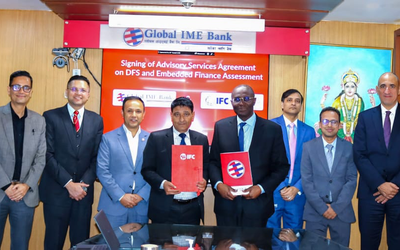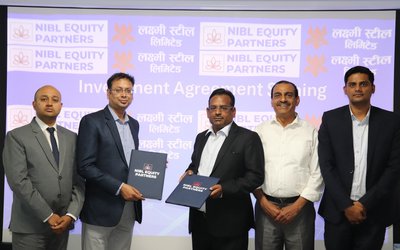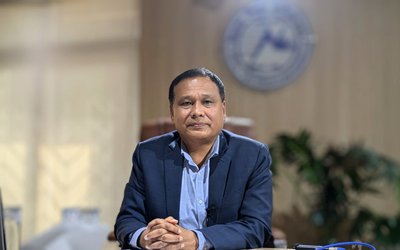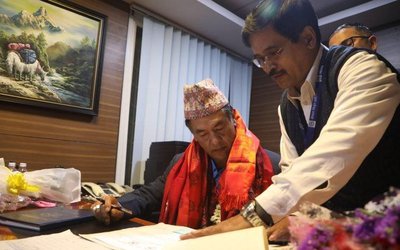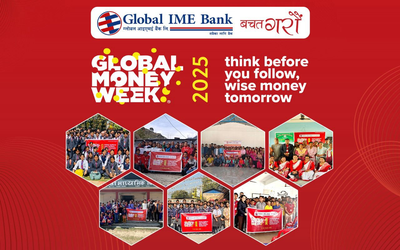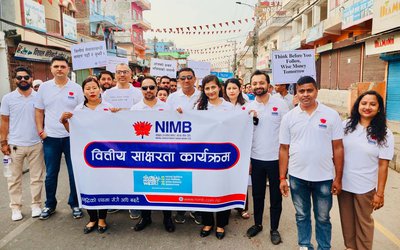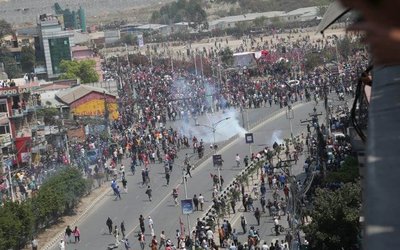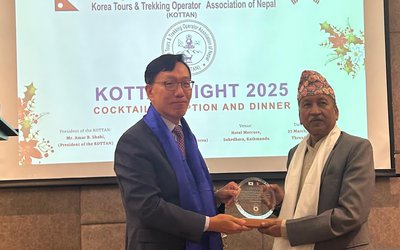
Alternative Energy Promotion Center (AEPC), the focal agency for renewable energy promotion in the country under the Ministry of Energy, Water Resources and Irrigation (MoEWRI), and the United Nations Development Program (UNDP) signed a US$ 1.5 million agreement to promote renewable energy in Nepal.
The grant, funded by the Asian Development Bank (ADB), will be used to provide technical assistance under the off-grid component of the South Asia Sub-regional Economic Cooperation (SASEC) Power Extension Project. Under this partnership, UNDP will also provide additional co-financing of US$ 0.8 million and technical support to AEPC through its Renewable Energy for Rural Livelihood (RERL) project. The agreement was signed today by AEPC Executive Director Mr. Madhusudhan Adhikari and the Resident Representative of UNDP Ms. Ayshanie Medagangoda-Labe in the presence of ADB Country Director Mr. Mukhtor Khamudkhanov.
The SASEC project is supporting rural communities to develop nine mini-hydropower subprojects in Taplejung, Solukhumbu, Rukum East, Rukum West, Dolpa, Jumla and Mugu districts and 10 solar mini-grids in Panchthar, Morang, Okhaldhunga, Sindhuli, Rolpa, Surkhet, Kailali and Baitadi districts with a cumulative capacity of 4.8 MW. “After completion of these subprojects, 30,500 additional households will have access to reliable, affordable and quality electricity,” said AEPC Executive Director Mr. Madhusudhan Adhikari. .

“With important technological upgrades being introduced, the value chain of renewable energy, this project will help convert the mini-hydro and solar mini-grids into livelihoods opportunities for the local communities,” said UNDP Resident Representative Ms. Ayshanie Medagangoda-Labe. “We value this partnership among AEPC, ADB and UNDP and need to work together, particularly at this time of crisis, as renewable energy has a great potential to give jobs to those who will be socially and economy affected due to the coronavirus outbreak”, she added.
SASEC has also been providing support to communities in Nepal to establish cooperatives and a company that is responsible for both developing and operating their subprojects. The SASEC program also promotes local employment generation, especially targeting women and members of marginalized communities, by skills training and providing access to electricity. The project intends to support the rural population to utilize 20% of the generated power in productive end-use applications.
“Adequate technical and managerial training support to the targeted communities will be the key for the successful operation of the community managed rural energy systems. The partnership will further strengthen the project efforts to bring important benefits and improve the quality of life of the communities in rural areas by providing affordable and reliable energy, and promoting productive use of electricity,” said ADB Country Director for Nepal Mukhtor Khamudkhanov.
- Police Fired Tear Gas To Control Pro-Monarchst Movemnet In Tinkune
- Mar 28, 2025
- KTTOAN 2025 Night Held In Kathmandu
- Mar 28, 2025
- 'High Security Surveillance' To Prevent Clashes between republican and royalist demonstrations
- Mar 28, 2025
- Weather Forecast: Partly Cloudy In Pokhara And Rain In few Places Of Hilly Areas Of Gandaki And Koshi
- Mar 28, 2025
- Global IME Bank and IFC partner on digital transformation and embedded finance advisory
- Mar 27, 2025
